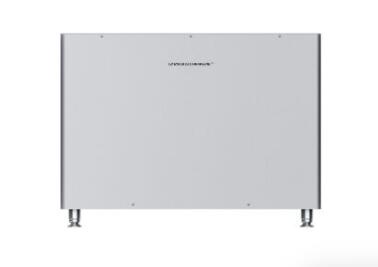As energy costs continue to rise and environmental concerns become increasingly prominent, homeowners are seeking more efficient and sustainable ways to heat their homes. Heat pumps have emerged as a popular choice, offering energy-efficient heating and cooling solutions while reducing carbon emissions. However, there's a common misconception that heating with a heat pump like pool heat pump is expensive. In this article, we'll explore the factors that influence the cost of heating with a heat pump and debunk the myth that it's prohibitively expensive.
Before delving into the cost considerations, it's essential to understand how heat pumps work. Unlike traditional heating systems that generate heat through combustion or resistance heating, heat pumps transfer heat from one place to another using refrigerant and a compressor. During the heating season, heat pumps extract heat from the outdoor air or the ground and transfer it indoors to provide warmth. During the cooling season, the process is reversed, and heat pumps remove heat from indoor air and transfer it outdoors to cool the space.
Factors Affecting Heating Costs with a Heat Pump
-
Energy Efficiency: Heat pumps are known for their energy efficiency, with modern models achieving high efficiency ratings. The Energy Efficiency Ratio (EER) and Seasonal Energy Efficiency Ratio (SEER) indicate the efficiency of air-source heat pumps for cooling, while the Heating Seasonal Performance Factor (HSPF) measures the efficiency of heat pumps for heating. Higher EER, SEER, and HSPF ratings indicate greater energy efficiency and lower operating costs.
-
Climate: Climate plays a significant role in determining the efficiency and performance of heat pumps. Air-source heat pumps are more effective in moderate climates with mild winters, as they rely on extracting heat from outdoor air. In colder climates, where temperatures drop below freezing, air-source heat pumps may be less efficient and require supplemental heating, which can increase operating costs.
-
Insulation and Home Efficiency: The energy efficiency of your home, including insulation levels, air sealing, and overall home performance, can impact heating costs with a heat pump. A well-insulated and energy-efficient home retains heat more effectively, reducing the workload on the heat pump and lowering energy consumption.
-
System Size and Type: The size and type of heat pump system you choose can affect heating costs. Proper sizing is crucial to ensure the heat pump adequately heats your home without oversized or undersized equipment. Additionally, the type of heat pump, such as air-source or ground-source (geothermal) heat pumps, can impact upfront costs and long-term operating expenses.
-
Energy Prices: Local energy prices, including electricity rates and the cost of alternative heating fuels such as natural gas or propane, can influence the comparative cost of heating with a heat pump. In regions with high electricity prices, the operating costs of heat pumps may be higher compared to areas with lower electricity rates.
Benefits of Heating with a Heat Pump
Despite the initial investment and potential operating costs, heating with a heat pump offers numerous benefits that can outweigh the perceived expense:
-
Energy Efficiency: Heat pumps are highly energy-efficient, with the ability to deliver more heating or cooling energy per unit of electricity consumed compared to traditional heating systems.
-
Lower Carbon Emissions: Heat pumps produce fewer greenhouse gas emissions compared to fossil fuel-based heating systems, contributing to environmental sustainability and reducing your carbon footprint.
-
Versatility: Heat pumps provide both heating and cooling capabilities in a single system, offering year-round comfort and flexibility.
-
Long-Term Savings: While the upfront cost of installing a heat pump may be higher than conventional heating systems, the potential energy savings over the lifespan of the system can result in long-term cost savings.
Considerations for Cost-Effective Heating with a Heat Pump
To maximize the cost-effectiveness of heating with a heat pump, consider the following tips:
-
Invest in Energy Efficiency: Improve the energy efficiency of your home through insulation upgrades, air sealing, and energy-efficient windows and doors to reduce heating loads and operating costs.
-
Proper Sizing and Installation: Ensure your heat pump is properly sized and installed by a qualified HVAC professional to optimize performance and efficiency.
-
Regular Maintenance: Schedule regular maintenance for your heat pump to ensure optimal performance and efficiency. Clean or replace air filters, check refrigerant levels, and inspect components for any issues.
-
Utilize Programmable Thermostats: Use programmable thermostats to adjust temperatures based on your schedule and reduce energy consumption when heating or cooling is not needed.
Conclusion
In conclusion, heating with a heat pump is not necessarily expensive when considering factors such as energy efficiency, climate, home efficiency, system size and type, and energy prices. While the upfront cost of installing a heat pump may be higher than traditional heating systems from https://zealux.com, the long-term energy savings, environmental benefits, and versatility of heat pumps make them a cost-effective and sustainable heating solution for many homeowners. By understanding the factors that influence heating costs with a heat pump and implementing cost-effective strategies, homeowners can enjoy efficient, comfortable, and environmentally friendly heating year-round.


No comments yet